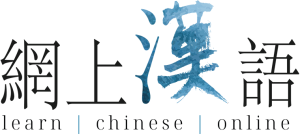Vocabulary: pinyin, phonetic and translation
Learn Chinese: phonetic
lǎo is pronounced the same way as in English but with the intonation on the syllable:
lǎo means "to be old" or "old".
shī means "master" (but it cannot be used alone, the word for master is shīfu). i is a buzzed continuation of the consonant following z-, c-, s-, zh-, ch-, sh- or r-. (In all other cases, -i has the sound of "bee".)
lǎoshī: teacher (literally "old master", "old" has the meaning of "honorable")
tóng: similar. 't' is an aspirated consonant. It must be pronounced by expelling a little blast of air to make a little explosion.
xué : to learn. x has no equivalent in English. Like -sh y-, with the lips spread and the tip of the tongue curled downwards and stuck to the back of teeth. The sound is made with the top middle part of the tongue. The ue is pronounced like the French 'ué', 'uer' (in 'suer' for example):
tóngxué: student (title, like sir or madam), classmate
men: (mark of the plural) is in neutral tone.
wǒmen: we
nǐmen: you (plural)
tāmen: they
men is used mainly with personal pronouns (we, you, they) and when addressing to humans. For example a teacher who addresses to his students will say: tóngxué men!
yě: also. After the y or the i, e is pronounced like 'é' in French:
qǐng: to invite, please. The q is pronounced like a 'ts' with an explosion of air (it is one of the six aspirated consonants of Chinese Mandarin) and with the top middle part of the tongue like the x).
zuò: to sit. The z is pronounced as 'dz':
búkèqi: you're welcome (kèqi : be polite). This 'bú' that is in the second tone is actually the same as the negation bù: it changes tone when it precedes a syllable in the fourth tone (descending tone) and takes then the second tone. It is one of the two syllables that changes tone (with the number 'one'). Finally, the letter 'k' is a aspirated consonant, so it must be pronounced with a little blast of air. As we saw above with qǐng, q is pronounced as a 'ts' with a little explosion of air:
duìbùqǐ: sorry. The d is pronounced as in English, but with strong exhalation! ui is pronounced as the initial sounds in "waiter", "wage" in English or like the sound 'oué' in French.
méiguānxi: it's nothing, it does not matter. The sound ei is pronounced as the "ay"-sounds in "cake", "say".
Background Colour
Font Face
Font Kerning
Font Size
Image Visibility
Letter Spacing
Line Height
Link Highlight
Paragraph Width
Text Alignment
Text Colour
